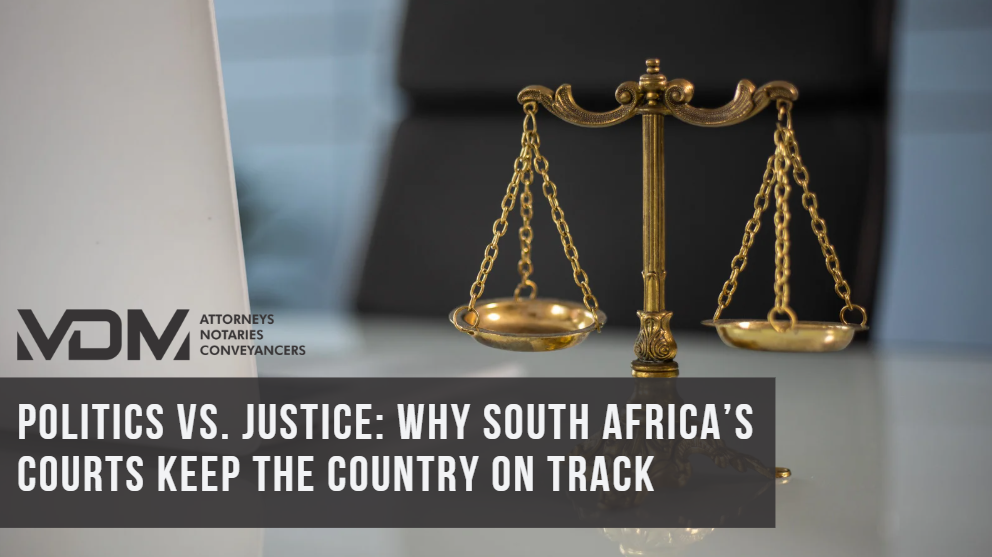
South Africans are no strangers to political turmoil. Inefficiency, corruption, populist rhetoric, and policies that bend under the pressure of political expediency dominate the headlines almost daily. Our government often appears unable - or unwilling - to act in the best interests of its citizens.
And yet, there is one part of our democracy that continues to shine: the judicial system.
When Politics Falters, the Law Prevails
South Africa’s Constitution is hailed globally as one of the most progressive in the world. But its strength is not in the ink on the page - it lies in the courts that uphold it.
Time and again, when government has acted outside the bounds of the Constitution or when laws have been introduced that undermine the rights of citizens, our judiciary has stepped in. Court judgments have struck down unconstitutional legislation, restrained executive overreach, and reaffirmed that no one - not even the President - is above the law.
Populism vs. Principle
Politicians may bow to populist ideals: promises of quick fixes, sweeping reforms, or headline-grabbing policies that sound appealing but collapse under constitutional scrutiny.
The courts, however, do not bend to popularity contests. Judges interpret the law, apply precedent, and anchor decisions in the Constitution - not in the shifting winds of public opinion. This stark contrast between politics and justice is exactly what preserves the stability of our democracy.
Recent Examples
- State Capture & Accountability – The courts forced the release of the State Capture report and continue to hold leaders accountable through prosecutions and commissions.
- Land Reform & Expropriation – While political voices call for expropriation without compensation, the judiciary has made it clear that constitutional protections for property ownership remain in place unless the Constitution itself is amended.
- Oversight of Chapter 9 Institutions – Chapter 9 institutions, such as the Public Protector, the Human Rights Commission, and the Auditor-General, were created by the Constitution to strengthen democracy and protect the rights of citizens. But even these powerful, independent bodies are subject to the Constitution and the rule of law. Courts have stepped in when these institutions overreach or fail in their duties, ensuring they remain accountable and effective.
Why This Matters for Every South African
In a country where politics often feels unstable, our courts provide certainty. Investors, homeowners, businesses, and ordinary citizens can take comfort in knowing that their rights are not at the mercy of political promises. They are protected by a system that still works - one of the best judicial systems in the world.
VDM Attorneys’ View
At VDM Attorneys, we see the impact of this daily. Whether it’s protecting property rights, enforcing contracts, or challenging unlawful actions, the judiciary remains the strongest line of defense for our clients.
Politics may frustrate us. Government may falter. But the rule of law endures. And as long as it does, South Africa has hope.